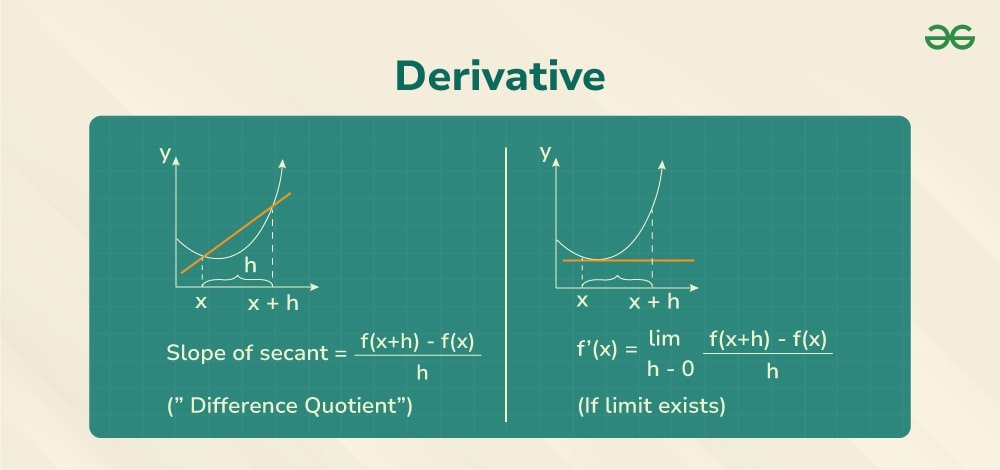



What is the definition of the derivative of a function at a point?
The integral of the function at that point
The value of the function at that point
The area under the curve
The slope of the tangent line to the graph of the function at that point
Which of the following is the basic formula for the derivative of a function f(x)?
f ( x + h ) − f ( x ) ( x + h ) − x = f ( x + h ) − f ( x ) h
f(x) is, f'(x) = lim ₕ → ₀ [ f(x + h)
y = f(x)
lim h→0 [f(x + h) - f(x)] / h
If a function f(x) is not differentiable at a point, what can be true?
The function may have a corner or cusp at that point
The function may have a vertical asymptote at that point
The function may not be continuous at that point
All of the above
What is the derivative of a constant function f(x)=c, where c is a constant?
0
1
Undefined
C
If the derivative of a function 𝑓(x) is positive at a point, what does this indicate about the function f(x)?
The function has a local minimum at that point
The function has a local maximum at that point
The function is increasing at that point
The function is decreasing at that point
Which of the following is true for a function that has a local maximum at x=a?
f′(a)≠0
𝑓′(𝑎)≠0
f′(a)=01
𝑓′(𝑎)=0
If f(x) is differentiable at a point and f (x)=0, what does it imply?
The function is increasing at that point
The function is not defined at that point
The function is not continuous at that point
There is a horizontal tangent at that point
Which of the following is true about the second derivative of a function at a point where 𝑓′′(𝑥)>0f′′(x)>0?
The function is concave up at that point
The function has a local minimum at that point
The function has a local maximum at that point
The function is concave down at that point
Which of the following is an example of a function that is continuous but not differentiable at a point?
f(y) = |y|
f(x) = |y|
f(x) = |x|
f(x) - |x| at x = 0
Which rule is used to differentiate the product of two functions?
Sum Rule
Product Rule
Chain Rule
Quotient Rule